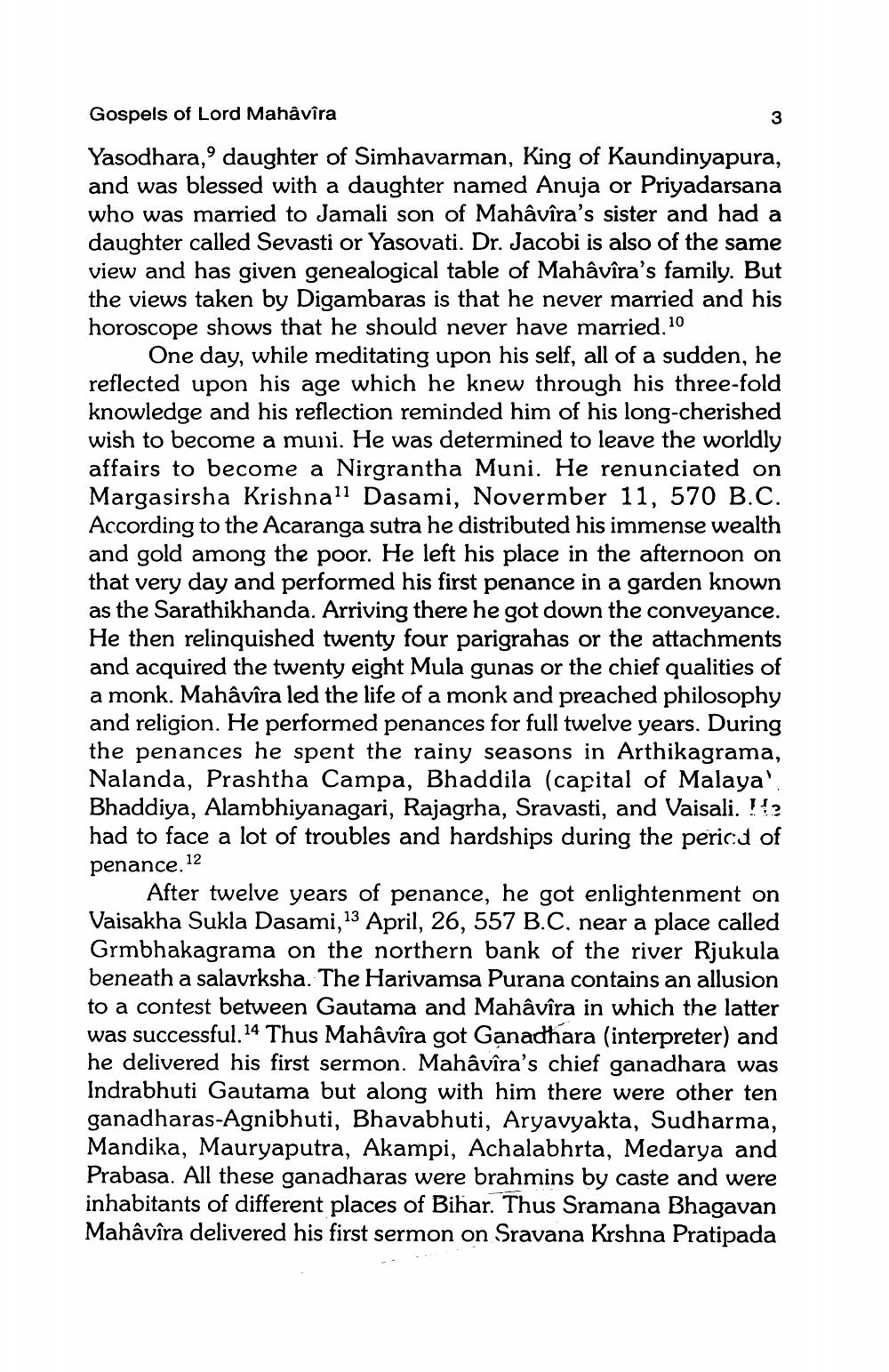________________
Gospels of Lord Mahâvîra
Yasodhara, daughter of Simhavarman, King of Kaundinyapura, and was blessed with a daughter named Anuja or Priyadarsana who was married to Jamali son of Mahâvîra's sister and had a daughter called Sevasti or Yasovati. Dr. Jacobi is also of the same view and has given genealogical table of Mahâvîra's family. But the views taken by Digambaras is that he never married and his horoscope shows that he should never have married.10
One day, while meditating upon his self, all of a sudden, he reflected upon his age which he knew through his three-fold knowledge and his reflection reminded him of his long-cherished wish to become a muni. He was determined to leave the worldly affairs to become a Nirgrantha Muni. He renunciated on Margasirsha Krishna11 Dasami, Novermber 11, 570 B.C. According to the Acaranga sutra he distributed his immense wealth and gold among the poor. He left his place in the afternoon on that very day and performed his first penance in a garden known as the Sarathikhanda. Arriving there he got down the conveyance. He then relinquished twenty four parigrahas or the attachments and acquired the twenty eight Mula gunas or the chief qualities of a monk. Mahâvîra led the life of a monk and preached philosophy and religion. He performed penances for full twelve years. During the penances he spent the rainy seasons in Arthikagrama, Nalanda, Prashtha Campa, Bhaddila (capital of Malaya'. Bhaddiya, Alambhiyanagari, Rajagrha, Sravasti, and Vaisali. !!2 had to face a lot of troubles and hardships during the perica of penance.
12
9
3
After twelve years of penance, he got enlightenment on Vaisakha Sukla Dasami, 13 April, 26, 557 B.C. near a place called Grmbhakagrama on the northern bank of the river Rjukula beneath a salavrksha. The Harivamsa Purana contains an allusion to a contest between Gautama and Mahâvîra in which the latter was successful. 14 Thus Mahâvîra got Ganadhara (interpreter) and he delivered his first sermon. Mahâvîra's chief ganadhara was Indrabhuti Gautama but along with him there were other ten ganadharas-Agnibhuti, Bhavabhuti, Aryavyakta, Sudharma, Mandika, Mauryaputra, Akampi, Achalabhrta, Medarya and Prabasa. All these ganadharas were brahmins by caste and were inhabitants of different places of Bihar. Thus Sramana Bhagavan Mahâvîra delivered his first sermon on Sravana Krshna Pratipada




